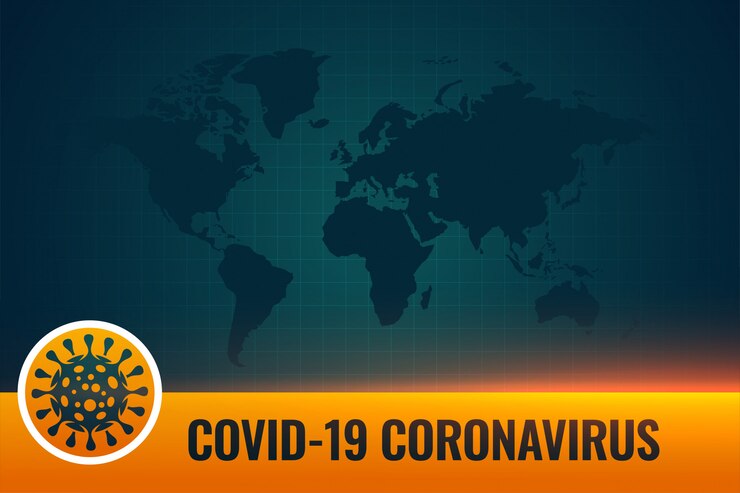Introduction
In today’s fast-paced world, staying informed about the latest developments in the COVID-19 pandemic is crucial. COVID-19 newsbreak refers to the constant stream of updates, reports, and analyses related to the coronavirus outbreak that flood various media channels. From breaking news alerts to in-depth articles, COVID newsbreak encompasses a wide range of information aimed at keeping individuals updated about the ongoing situation.
Understanding COVID-19 Newsbreak
COVID-19 newsbreak encompasses a variety of content, including reports on infection rates, vaccine developments, government responses, and public health measures. It includes breaking news stories, expert opinions, data analyses, and feature articles. With the dynamic nature of the pandemic, newsbreak can vary from hourly updates to more comprehensive analyses published periodically.
Importance of COVID-19 Newsbreak
The significance of COVID-19 newsbreak cannot be overstated. It plays a vital role in keeping the public informed about the latest developments, helping individuals make informed decisions regarding their health and safety. Timely and accurate reporting is essential for public health officials and policymakers to formulate effective strategies in combating the pandemic.
Reliability of COVID-19 Newsbreak
In the age of information overload, ensuring the reliability of COVID-19 newsbreak is paramount. Individuals must critically evaluate the sources of information, cross-check facts, and rely on reputable news outlets and health organizations. Fact-checking mechanisms and initiatives to combat misinformation are crucial in maintaining the credibility of COVID-19 newsbreak.
How COVID-19 Newsbreak Impacts Communities
The impact of COVID-19 newsbreak extends beyond mere information dissemination. It influences public perceptions, shapes behaviors, and affects societal norms. Newsbreak can have significant social and economic implications, leading to changes in consumer behavior, business operations, and government policies. Moreover, constant exposure to COVID-19 newsbreak can contribute to heightened anxiety and stress among individuals.
Staying Updated with COVID-19 Newsbreak
With the abundance of information available, individuals must prioritize reliable sources for COVID-19 newsbreak. Official government websites, reputable news organizations, and trusted health authorities provide accurate and up-to-date information. Following guidelines from these sources helps individuals stay informed while avoiding the spread of misinformation.
Challenges in Reporting COVID-19 Newsbreak
Despite the importance of COVID-19 newsbreak, journalists and media outlets face numerous challenges in reporting on the pandemic. Misinformation and disinformation campaigns pose significant obstacles to accurate reporting, leading to confusion and distrust among the public. Additionally, journalists must navigate sensitive topics related to health, politics, and societal impacts with care and empathy.
The Role of Media in COVID-19 Newsbreak
Media outlets play a crucial role in disseminating COVID-19 newsbreak responsibly. They have a responsibility to provide accurate, balanced, and transparent coverage of the pandemic. Ethical considerations, such as protecting individual privacy and avoiding sensationalism, are paramount in maintaining public trust and confidence in media reporting.
COVID-19 Newsbreak and Public Trust
Building and maintaining public trust is essential in the dissemination of COVID-19 newsbreak. Media outlets must prioritize accuracy, transparency, and accountability in their reporting to earn the trust of their audience. Addressing skepticism and misinformation requires concerted efforts from journalists, fact-checkers, and health experts to ensure that accurate information prevails.
Conclusion
In conclusion, COVID-19 newsbreak plays a crucial role in keeping the public informed and empowered during the ongoing pandemic. By understanding the importance of reliable information, staying updated through reputable sources, and critically evaluating news content, individuals can navigate the challenges of COVID-19 with confidence and resilience.
FAQs
- How can I distinguish reliable COVID-19 news from misinformation?
- Look for information from reputable sources such as government health agencies, established news organizations, and medical experts. Cross-check facts and be wary of sensationalist headlines or unverified claims.
- What should I do if I come across COVID-19 news that seems misleading or inaccurate?
- Report it to the platform or website hosting the information, and consider contacting fact-checking organizations to verify the accuracy of the content. Avoid sharing potentially misleading information to prevent its spread.
- Are there any specific guidelines for journalists reporting on COVID-19 news?
- Yes, several journalistic organizations and health authorities have published guidelines for reporting on the pandemic. These guidelines emphasize accuracy, sensitivity, and ethical considerations when covering COVID-19-related topics.
- How can I manage the anxiety and stress caused by constant exposure to COVID-19 newsbreak?
- Limit your consumption of news to trusted sources and set boundaries for media exposure. Engage in activities that promote relaxation and well-being, such as exercise, meditation, and connecting with loved ones.
- Where can I find reliable information about COVID-19 vaccines and their distribution?
- Official government health websites, such as the Centers for Disease Control and Prevention (CDC) or the World Health Organization (WHO), provide accurate information about COVID-19 vaccines, including distribution plans, efficacy, and safety.


